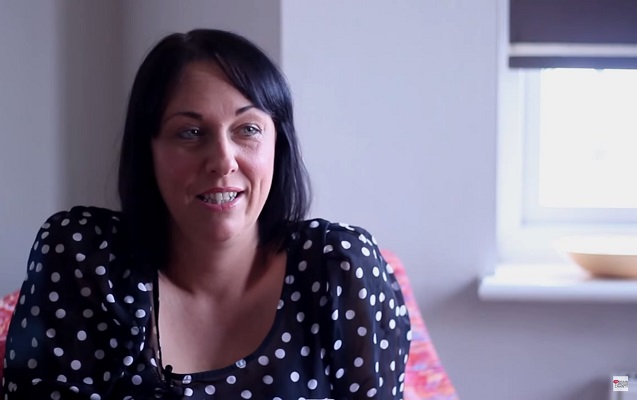Employment rights for people with a brain tumour
There may be certain legislation which protects you or gives you rights within employment if you have a brain tumour.
On this page we have outlined the relevant laws and statutory guidance in England, Scotland, Wales and Northern Ireland. These protect the rights of people with a disability to:
- Equal or more positive treatment at work
- Equal or more positive treatment when job hunting
- Not be discriminated against
It can also be used by people who are caring for someone with a brain tumour.
On this page:
Does having a brain tumour mean I am disabled?
Do I have to tell my employer about my brain tumour?
What rights do people with a brain tumour or their carers have at work?
What rights do I have to reasonable adjustments?
What legislation protects people with a brain tumour and their carers while at work?
Does having a brain tumour mean I am disabled?
The Equality Act 2010 says that you are disabled if:
- you have a physical or mental impairment
- that impairment has a long-term and substantial adverse effect on your ability to carry out normal day-to-day activities
If you have a brain tumour (low or high grade) in the eyes of the law you may be considered to have a disability , even though you may not see yourself that way.
Some specified medical conditions, including cancer (high grade brain tumours) are automatically considered as disabilities, regardless of their effect.
Citizens Advice has some more information on what counts as a disability

Expert benefits & money advice
Last year our free Benefits and Money Clinic helped 332 members of our community claim over £950,000!
Do I have to tell my employer about my brain tumour?
You do not have to tell your employer, or prospective employer, that you have or had a brain tumour, or are caring for someone with a brain tumour
However, you should think carefully before you decide. It may not be in your best interests to decide not to. This is because they may not be able to support you in the best way to continue to do your job. Also, if you are treated unfavourably, you may find it hard to make a formal complaint, as they are unaware of your condition.
Telling your employer about your brain tumour
What employment rights do people with a brain tumour and their carers have?
An employer cannot discriminate against you on the grounds of disability. This means you cannot be treated less favourably than others because you have a brain tumour.
Also, you are protected from harassment. This is when an employer or colleague bullies, intimidates or insults you because you have, or are associated with someone who has a brain tumour.
You are protected from victimisation. This is where someone is treated unfairly because they complained about discrimination.
Your employer does not have an automatic right to see your medical information. While they may ask for a report on your health from your doctor, they can only do this with your permission. You have the right to see this report before your employer does.
Your employer must keep your personal information private. So, they cannot tell your colleagues or clients without your permission. They must keep secure any personal information, including emails and meeting notes.
Everyone has the right to ask for flexible working after 26 weeks of employment. Your employer has a duty to consider this. For example, you may need this to take the person you are caring for to appointments. Flexible working rules differ in Northern Ireland.
If you are caring for someone with a brain tumour, you have the right to take a reasonable amount of unpaid time off to look after dependants in an emergency
If you are in paid employment and legally classed as disabled, your employer must make ‘reasonable adjustments’ to help and support you (assuming they know you have/had a brain tumour).
Do I have a right to reasonable adjustments?
There is no fixed definition of what a ‘reasonable adjustment’ is – it depends on how practical it is, how much benefit you will get, how much disruption to the employer’s activities it causes, and cost.
You should be fully consulted and involved in agreeing the reasonable adjustments.
There is no limit to the number of reasonable adjustments an employer must make nor how often you can ask for them.
Also, your employer cannot ask you to pay for any reasonable adjustments.
Find examples of reasonable adjustments
If your employer does not make reasonable adjustments when they are obliged to do so, this is disability discrimination. Try talking to your employer first. If you feel they aren’t behaving reasonably, take advice from a union representative, if you have one.
Or, you can speak to ACAS (Advisory, Conciliation and Arbitration Service) in England, Scotland, or Wales or the Labour Relations Agency in Northern Ireland.
If you still can’t resolve matters, you may want to make a formal complaint/grievance. See your employer’s grievance policy for how to go about this. If you feel your employer is not dealing with your grievance or you have been discriminated against, you can complain to an employment tribunal. You should seek advice promptly if you think you might want to do this.
See our information on employment advice organisations for information on who to contact.
What legislation protects people with a brain tumour and their carers at work?
The following legislation protects people in the UK:
The following legislation protects people in England, Scotland and Wales
- Equality Act 2010
- Childrens & Families Act 2014
- Employment Rights Act 1996
- The Employment Relations (Flexible Working) Act 2023
The following legislation protects people in Northern Ireland
- Disability Discrimination Act 1995 (DDA)
- Employment Rights (Northern Ireland) Order 1996
- Employment Relations (Northern Ireland) Order 1999
- The Flexible Working Regulations NI 2015
Support and Information Services
Research & Clinical Trials Information
You can also join our active online community.
In this section

Get support
If you need someone to talk to or advice on where to get help, our Support and Information team is available by phone, email or live-chat.
Recommended reading

I struggle to work
Tasmin is a single mother of three children, and lives in Cheshire. She was diagnosed with a meningioma in 2013 and underwent a craniotomy. She is a midwife but has struggled with work and finances since the onset of her tumour.
Share your experiences and help create change
By taking part in our Improving Brain Tumour Care surveys and sharing your experiences, you can help us improve treatment and care for everyone affected by a brain tumour.